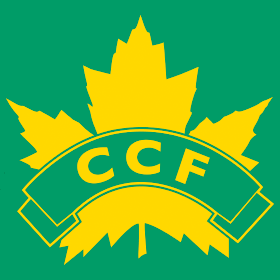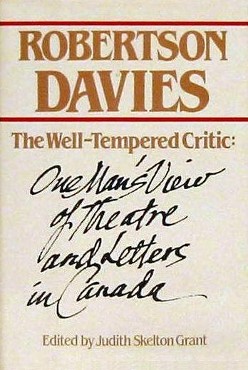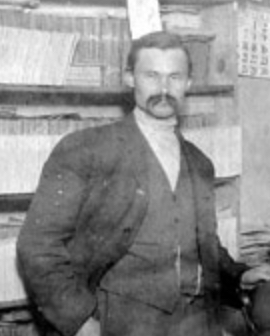
The Co-operative Commonwealth Federation was a federal democratic socialist and social-democratic political party in Canada. The CCF was founded in 1932 in Calgary, Alberta, by a number of socialist, agrarian, co-operative, and labour groups, and the League for Social Reconstruction. In 1944, the CCF formed one of the first social-democratic governments in North America when it was elected to form the provincial government in Saskatchewan.

Irving Peter Layton, OC was a Romanian-born Canadian poet. He was known for his "tell it like it is" style which won him a wide following but also made him enemies. As T. Jacobs notes in his biography (2001), Layton fought Puritanism throughout his life:
Layton's work had provided the bolt of lightning that was needed to split open the thin skin of conservatism and complacency in the poetry scene of the preceding century, allowing modern poetry to expose previously unseen richness and depth.

Walter Lockhart Gordon was a Canadian accountant, businessman, politician, and writer.

McClelland & Stewart Limited is a Canadian publishing company. It is owned by Penguin Random House of Canada, a branch of Penguin Random House, the international book publishing division of German media giant Bertelsmann.

Canadian nationalism seeks to promote the unity, independence, and well-being of Canada and the Canadian people. Canadian nationalism has been a significant political force since the 19th century and has typically manifested itself as seeking to advance Canada's independence from influence of the United Kingdom and the United States. Since the 1960s, most proponents of Canadian nationalism have advocated a civic nationalism due to Canada's cultural diversity that specifically has sought to equalize citizenship, especially for Québécois and other French-speaking Canadians, who historically faced cultural and economic discrimination and assimilationist pressure from English Canadian-dominated governments. Canadian nationalism became an important issue during the 1988 Canadian federal election that focused on the then-proposed Canada–United States Free Trade Agreement, with Canadian nationalists opposing the agreement – saying that the agreement would lead to inevitable complete assimilation and domination of Canada by the United States. During the 1995 Quebec referendum to determine whether Quebec would become a sovereign state or whether it would remain in Canada, Canadian nationalists and federalists supported the "no" side while Quebec nationalists largely supported the "yes" side, resulting in a razor-thin majority in favour of the "no" side.

Alfred Wellington Purdy was a 20th-century Canadian free verse poet. Purdy's writing career spanned fifty-six years. His works include thirty-nine books of poetry; a novel; two volumes of memoirs and four books of correspondence, in addition to his posthumous works. He has been called English Canada's "unofficial poet laureate" and "a national poet in a way that you only find occasionally in the life of a culture."
Robert Lorne Hunter was a Canadian environmentalist, journalist, author and politician. He was a member of the Don't Make a Wave Committee in 1969, and a co-founder of Greenpeace in 1971 and its first president. He led the first on-sea anti-whaling campaigns in the world, against Russian and Australian whalers, which helped lead to the ban on commercial whaling. He campaigned against nuclear testing, the Canadian seal hunt and later, climate change with his book Thermageddon: Countdown to 2030. He was named by Time as one of the "Eco-Heroes" of the 20th century.
Marjorie May "Maggie" Siggins is a Canadian journalist and writer. She was a recipient of the 1992 Governor General's Award for Literary Merit for her non-fiction work Revenge of the Land: A Century of Greed, Tragedy and Murder on a Saskatchewan Farm. She was also the recipient of the 1986 Arthur Ellis Award for "Best true crime book" for her work A Canadian Tragedy, about the involvement of former Saskatchewan politician Colin Thatcher in the murder of his wife JoAnn Wilson. The book was later adapted into the television miniseries Love and Hate: The Story of Colin and JoAnn Thatcher.
Colin Malcolm McDougall (1917–1984) was a Canadian author best known for his 1958 Governor General's Award-winning novel Execution.

One Dead Indian: The Premier, the Police, and the Ipperwash Crisis is a book by Canadian investigative journalist Peter Edwards about the 1995 Ipperwash Crisis and the shooting death of aboriginal land claims protester Dudley George by the Ontario Provincial Police on September 7, 1995. It was first published by Stoddart in 2001 and reprinted several times and published as an ebook.
John Steffler is a Canadian poet and novelist. He served as Canadian Parliamentary Poet Laureate from 2006 to 2008.

This is a bibliography of major works on the History of Canada.
John Victor Maxwell Braithwaite was a Canadian novelist and non-fiction author. He was born in Nokomis, Saskatchewan and spent his youth in a number of communities in that province. As an adult he moved to Ontario, living in communities such as Orangeville, Port Carling and finally Brighton where he died at age 83.
Trevor Cole is a Canadian novelist and journalist. He has published five novels; the first two, Norman Bray in the Performance of his Life (2004) and The Fearsome Particles (2006), were nominated for the Governor General's Literary Award for Fiction and longlisted for the International Dublin Literary Award.

The Well-Tempered Critic: One man's view of the theatre and letters in Canada is a collection of essays by Canadian novelist and journalist Robertson Davies. The collection was edited by Judith Skelton Grant and published by McClelland and Stewart in 1981.
Peter Busby Waite was a Canadian historian and Dalhousie University professor.

John Angus "Bud" McDougald (14 March 1908 – 15 March 1978) was a leading Canadian businessman and owner of Thoroughbred racehorses. In 1975, journalist Peter Newman wrote that, "He may well be the least known and most admired member of the [Canadian] business Establishment. Without question, he is the most powerful."

The 1961 New Democratic Party founding convention was held in Ottawa from July 31 to August 4 to elect a leader of the New Democratic Party (NDP) of Canada. This convention formally closed down the Co-operative Commonwealth Federation (CCF) party, the New Party clubs, and merged them with the Canadian Labour Congress (CLC) to form the NDP. It is also known for the divisive leadership vote in which Saskatchewan Premier Tommy Douglas was elected over national CCF leader Hazen Argue. Over 2000 delegates attended the five-day convention held at the Ottawa Coliseum.

Myroslaw Stechishin was a Ukrainian-Canadian editor, political activist, and public figure. After immigrating from Galicia to Canada in 1902, Stechishin worked as a labourer and was socialist activist. Later, he became greatly involved in the Ukrainian community of Winnipeg, Manitoba.












